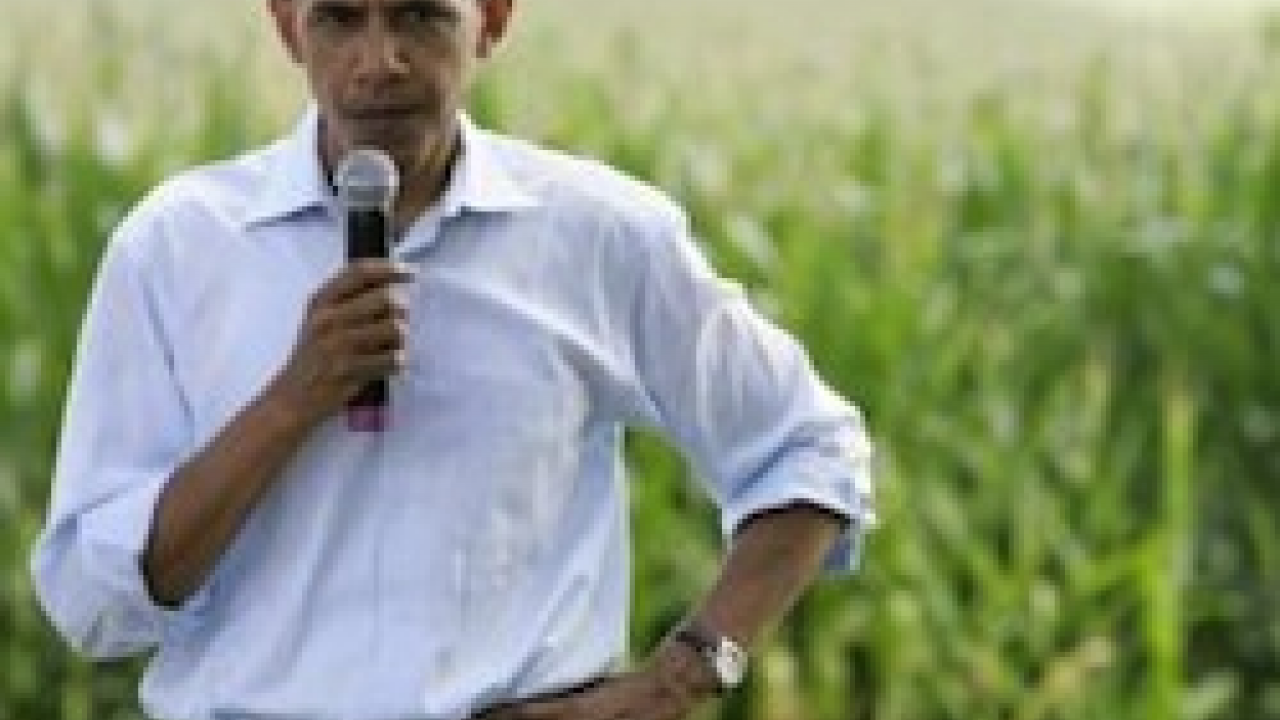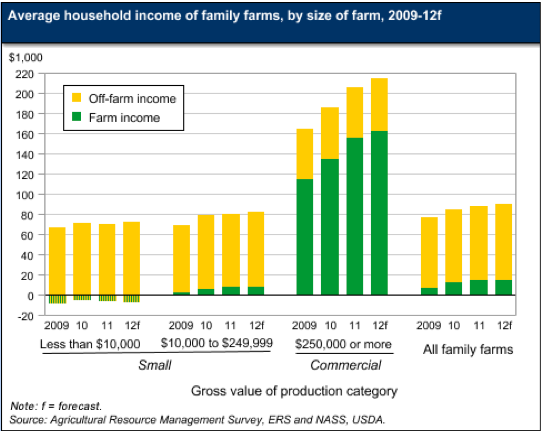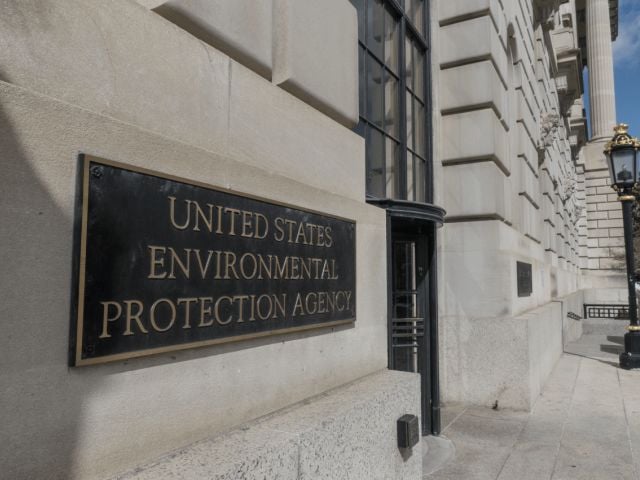
By now, every American is familiar with Mitt Romney’s suggestion that 47 percent of Americans are “victims” who are “dependent” on government assistance. In his own words:
There are 47 percent of the people who will vote for the president no matter what. There are 47 percent who are with him, who are dependent upon government, who believe that they are victims, who believe that government has a responsibility to care for them, who believe that they are entitled to health care, to food, to housing, to you name it.
Roughly a third of all farmers receive direct subsidies from the government, according to USDA. Even more get federal support to buy crop insurance. So are farmers among those “dependent” Americans? And can President Obama really depend upon their support?
Despite enjoying record farm income, many Iowa farmers are planning to vote for Romney, The New York Times reported on Sunday, because they believe President Obama will increase federal spending and the deficit. What the Times forgot to mention is that many of the farmers featured in the story are cashing in on farm subsidies funded by taxpayers. According to the story:
“That’s a big thing to farmers,” said Mr. Woltemath, 71. “You cannot run a business that way, and I just don’t see how you can run a government that way. If you’re $16 trillion in debt, my, isn’t it time to stop spending and address that?”
Mr. Woltemath’s farm collected $520,954 in farm subsidies between 1995 and 2011.
Again, from The Times:
The agricultural economy cannot be sustained with the president’s fiscal habits, said Randy Euken, a Romney supporter who farms 2,400 acres of crops and has 150 cows in southwestern Iowa. “If you spend like a fool, you’re going to look like a fool someday,” he said.
No one would confuse Mr. Euken for a fool: His farm received $1,053,518 in subsidies from 1995 to 2011.
But the deficit wasn’t the only issue mentioned by farmers The Times interviewed:
For Dan Sturm, who farms 700 acres of corn and soybeans here in Hamburg, Mr. Obama’s health care law is an example of the government control he dislikes. “Should I pay for somebody’s abortion or pay for somebody’s pill?” Mr. Sturm asked. “No, I don’t believe I should.”
Mr. Sturm banked $296,897 in subsidies between 1995 and 2011.
For another farmer, religion is the issue:
Glen Stenzel, a crop farmer here, said that even though Mr. Obama is a Christian, he had reservations.
“His religious background really concerns me, or lack of,” Mr. Stenzel said. “There’s a lot of things in his background, where he came from and what his family ties – one thing or another – are.”
Mr. Stenzel took home $961,501 in subsidies from 1995 to 2011.
Unlike other “victims” who depend upon Social Security, food stamps or veterans’ benefits, the proportion of farmers who are, in Romney’s words, “dependent” on government support, actually gets larger as the recipients get richer. And, so does the amount of financial support each one receives.
By and large, only 55 percent of smaller farmers with $10,000 to $250,000 a year in gross revenue collect farm subsidies such as direct payments and disaster relief. By contrast, nearly 80 percent of farmers with annual gross revenue of $250,000 to $1 million (we’ll call them “big”) gorge on the subsidies. Nearly 70 percent of farmers with more than $1 million a year in revenue (we’ll call them “very big”) get federal support.
In fact, big and very big farmers collect most of the federal largesse. The average payment for a big farmer is about $27,000 a year; for a very big farmer, it’s about $61,000 a year. Meanwhile, the average payment for a farmer grossing less than $250,000 is about $8,200 a year.
Are these big and very big farmers “dependent upon the government?” Not really.
According to USDA, government support is not a big piece of the gross revenue banked by these large farms – just 5 percent for big farmers and just 3 percent for very big farmers.
Many of these large commercial farms are expected to enjoy household income greater than $200,000 in 2012 – four times the income of an average American household. By contrast, family farmers earning less than $250,000 a year expect to have household income of about $80,000. But unlike the big and bigger farmers, most of their income will come from jobs off the farm.

If farmers don’t need the money, why are taxpayers continuing to fork over nearly $7 billion a year to them to purchase crop insurance (and $1.3 billion to insurance companies to sell the policies) on top of $5 billion in direct payments? And why are both the House and Senate Agriculture Committees proposing to cut hunger and environmental programs to increase crop insurance subsidies?
Who are the “victims,” to quote Mitt Romney?
The victims, of course, include taxpayers who have already paid farmers nearly a quarter of a trillion dollars in subsidies since 1995. The victims also include hungry Americans who will lose food stamp benefits so that Congress can shovel more subsidies to farmers who don’t need them.
And who actually does depend on these subsidies for their survival?
One answer is farm lobbyists. According to Open Secrets.org, the website of the non-partisan Center for Responsive Politics, more than a thousand lobbyists spent more than $125 million last year to push for a “strong” safety net in a “strong” farm bill. And then there’s the (mainly Republican) members of Congress who funnel taxpayers’ money to farmers – and get some of itback in the form of campaign contributions. Agribusiness contributed more than $70 million to members of Congress over the last two years, and corn and cotton lobbyists gave twice as much to Republicans as to Democrats.
As EWG noted last week, farmers in big farm states are not only more likely to be registered Republicans but are also more likely to contribute to Republican candidates. What’s more, the larger the subsidy a farm operator gets, the more likely he is to support Republicans.
So why do Congressional Democrats continue to support farm subsidies? As EWG’s David DeGennaro noted recently, Democrats who help funnel these subsidies to farmers may simply be “financing their opponents’ campaigns.”


